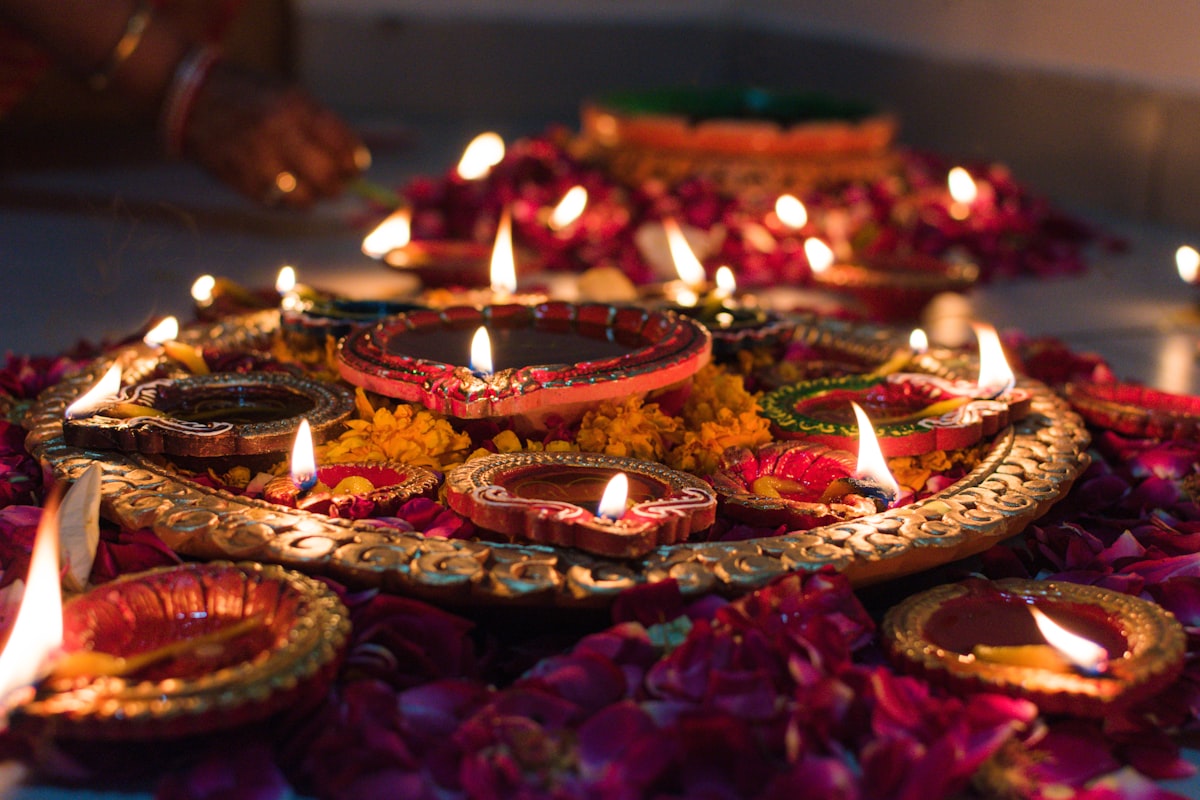diwali: a festival of light, triumph, and symbolism

Diwali, also known as the Festival of Lights, holds a special place in the hearts of millions around the world. Celebrated with fervor and joy, this Hindu festival symbolizes the triumph of light over darkness, good over evil, and knowledge over ignorance. As families gather, homes are adorned with colorful decorations, and the night sky sparkles with fireworks, the deeper symbolism of Diwali becomes evident.
At its core, Diwali represents the victory of righteousness and the dispelling of ignorance. The lighting of lamps during Diwali is not merely a ritual; it is a profound symbol of the inner light that resides within each of us. As the great spiritual leader Mahatma Gandhi once said, "In the midst of darkness, light persists." This echoes the essence of Diwali—the unwavering light that can guide us through the darkest of times.
The lighting of lamps also carries a metaphorical meaning, as it signifies the elimination of spiritual darkness. The acclaimed author Amit Ray beautifully captures this sentiment, stating, "Light, the symbol of truth, dispels the darkness of ignorance." Diwali encourages us to reflect on our inner selves, to dispel the ignorance that clouds our minds, and to embrace the truth that leads to enlightenment.
Another significant aspect of Diwali is the worship of the goddess Lakshmi, the symbol of wealth and prosperity. However, the true wealth that Diwali encourages us to seek is not just material abundance but also the richness of character, compassion, and wisdom.
The exchange of gifts and sweets during Diwali also holds symbolic value. It symbolizes the expression of love, gratitude, and the strengthening of bonds with friends and family. As the Dalai Lama emphasizes, "Love and compassion are necessities, not luxuries. Without them, humanity cannot survive." Diwali serves as a reminder to cultivate these virtues and share them generously.
Fireworks, an integral part of Diwali celebrations, signify the triumph of good over evil. However, it is essential to approach this aspect of the festival with mindfulness. The environmental impact of fireworks is a concern, and as we revel in the festivities, it is crucial to be mindful of our actions. Mahatma Gandhi's words resonate here too: "You must be the change you want to see in the world."
Also, the act of cleaning and decorating homes during Diwali is not just a physical ritual but a symbolic cleansing of the mind and heart. It prompts us to rid ourselves of negativity and embrace positivity. Diwali teaches us the art of surrendering to positive transformations, letting go of grievances, and fostering a sense of renewal.
In essence, Diwali is not just a festival of external celebrations; it is a deeply symbolic journey toward inner illumination, truth, compassion, and the triumph of good over evil. It extends far beyond the surface-level rituals and urges us to introspect, transform, and radiate positivity in our daily lives.
As we light the lamps and exchange greetings, let us remember the profound wisdom encapsulated in the festival and strive to embody its teachings in our lives. In the words of Rabindranath Tagore, "The lamp of love, truth, and courage will dispel the darkness of ignorance." May the light of Diwali guide us on the path of goodness and wisdom, both individually and collectively.
Wishing you all a happy, prosperous, and safe Diwali! Have a wonderful time with your family and friends.


